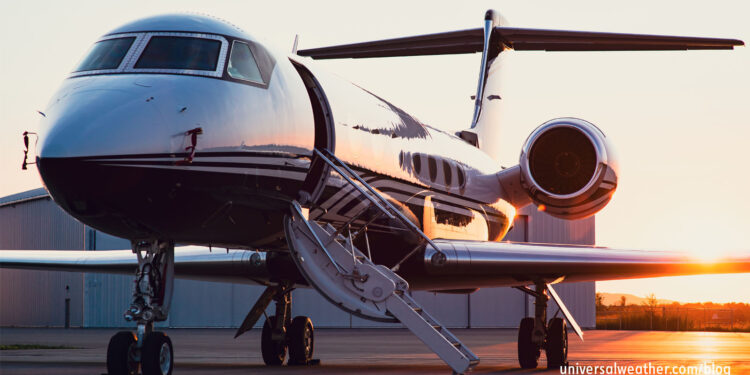Central and South Asia Bizav Ops – Part 2: Airport and Local Considerations

This business aviation blog post continues from our article last week, entitled “Central and South Asia BizAv Ops – Part 1: Landing and Overflight Permits.”
When conducting business aircraft operations into secondary airports in the Central and South Asian region, it’s important to confirm availability of aircraft support services as well as security, in-flight catering, and credit availability well in advance.
The following is an overview of what you need to know:
1. Airport and tech stop considerations
Primary airfields in this region are 24-hour Airports of Entry (AOEs). Depending upon the airport, you’ll clear customs either at a fixed-base operator, a general aviation terminal, or in the main terminal. There are several popular destinations to consider within this region for planned tech stops. Common tech stop examples in the region include Ashgabat (UTAA), Almaty (UAAA), Baku (UBBB), Tashkent (UTTT), and Astana (UACC). These are all 24-hour AOEs. Another stop in the region used by some operators, though not used as a tech stop, is Kabul (OAKB). No airport slots or Prior Permissions Required (PPRs) are needed at any of these airports, except for OAKB. For this airport, slots and a PPR are needed. Note that short-notice and last-minute tech stop requests may be challenging in terms of obtaining appropriate landing and surrounding overflight permits.
2. Special considerations for Afghanistan
When operating to OAKB, you’ll need 72 hours’ notice to process the PPR. Airport slots should be requested as soon as the schedule is known, and the slot deviation is +/- 5 minutes. Also, 48 hours’ lead time is needed to process landing permits for which there are restrictions to consider in terms of approved routes when traveling to/from this airport. Landing permits are processed through the Afghan military, not the Civil Aviation Authority, and ground support equipment availability may be limited at OAKB.
3. Aviation fuel, in-flight catering, and credit availability
Note that fuel uplifts need to be requested 24 hours in advance at some locations within the region. Other locations offer only TS-1 fuel and not Jet A. It’s always best to check in advance what aviation fuel choices, lead times, and credit arrangements are available. For in-flight catering 24-48 hours’ advance notification is recommended. Catering facilities at many of these locations are not operational 24 hours, and short-notice request options may be limited. Some specialty catering items may be difficult to source, and the best catering outcomes usually involve ordering local specialties, cuisine styles, and in-season produce. Credit arrangements often need to be made in advance, and some locations will require additional time to set up operator credit.
4. Hotel and local transport considerations
Some locations in Central and South Asia have very limited selections of international chain hotels. At certain locations you may end up with crew accommodations at hotels that may not meet your operational requirements. It’s best to research acceptable accommodation options in advance. In terms of local transportation, taxis and public transportation should be avoided due to language barriers and security concerns. Rental vehicles are also not recommended for this region. Best option recommended is to arrange prepaid transport (car with driver).
5. Off-airport security
When you travel to Central and South Asia, security can be an essential trip planning and day-of-operation consideration. It’s recommended that operators obtain a security report/briefing from a 3rd-party vendor or communicate directly with the internal security department of their organization.
Conclusion
When traveling to Central and South Asia, plan ahead and know local regulations/restrictions within the region. Best practice is to check in advance what services, including any aviation fuel or in-flight catering limitations, are available at each destination.
Questions?
If you have any questions about this article or information pertaining to this region, contact me at larrywilliams@univ-wea.com.




